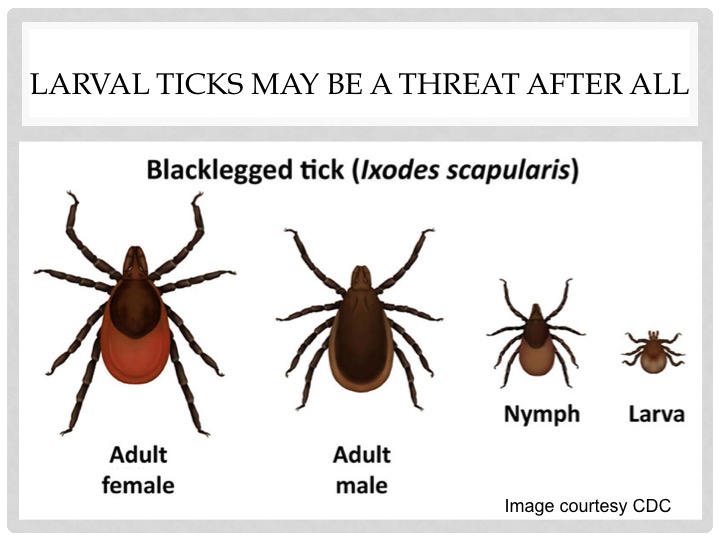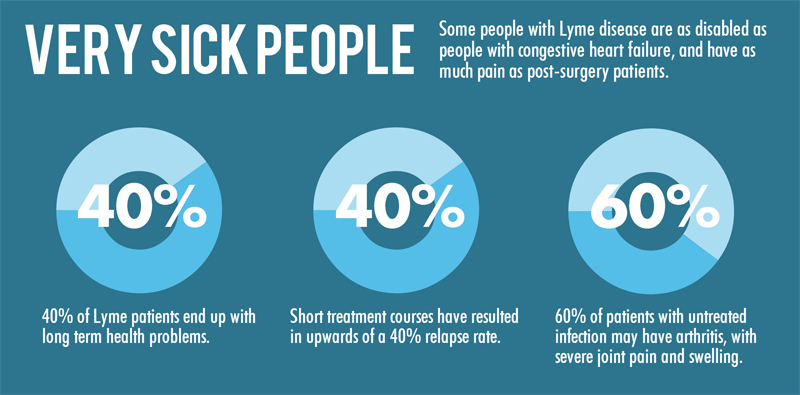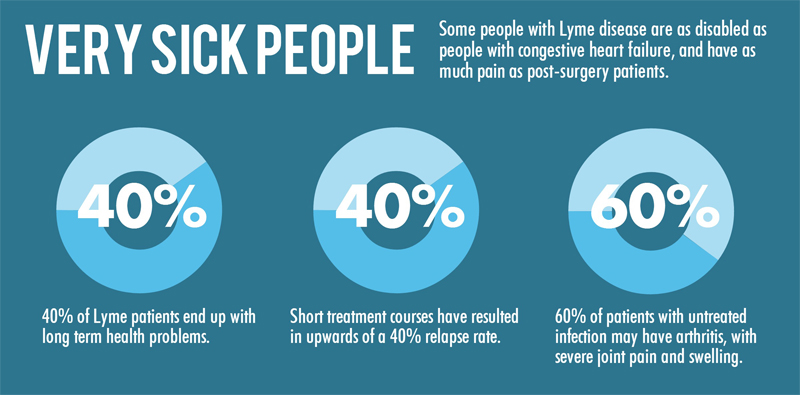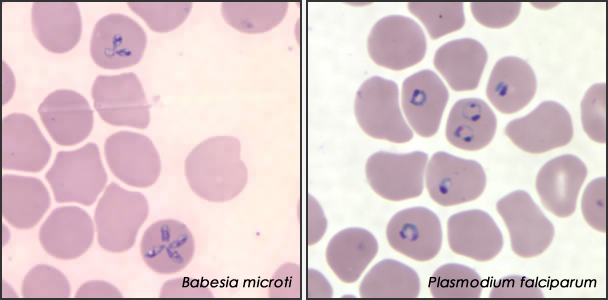Chronic Lyme disease patients want to be treated, not ‘managed’ by physicians
Over the past month, a series of articles, focusing on multiple aspects of Lyme disease, from pediatric Lyme to chronic Lyme to life after Lyme, have been published in the May and June issues of Infectious Disease Clinics of North America and Clinical Infectious Diseases. The articles echo messages that, for the most part, minimize a disease that impacts hundreds of thousands of people each year -- many of whom are children.
What is that smell?
It may not seem like an especially concerning or troublesome symptom. After all, what's the big deal about having superpower smelling abilities? You can smell the flowers, the gourmet food, and the freshly brewed coffee better than anyone else. But, for many patients hyperosmia is not a blessing and is more than a simple annoyance. It can cause extreme discomfort, even making patients sick at times.
Larval ticks may be a threat after all ─ insights based on study of Borrelia miyamotoi
The tiny larval tick has never been considered a threat to humans. Experts had long believed that an adult female tick could not pass on any infections to the eggs and larvae. As a result, ticks in the larva stage were thought to be free from carrying diseases and therefore, harmless. But that may not necessarily be the case, according to a case series by Philip Molloy, MD and colleagues, published in the Annals of Internal Medicine. [1]
New study by guidelines author dismisses risk of chronic Lyme disease
There is a growing body of evidence demonstrating the existence of chronic manifestations of Lyme disease. These studies have found that the Borrelia burgdorferi (Bb) infection can cause chronic illness, even when the standard 14- to 21-day antibiotic treatment regime is initiated in the early stages of the disease. [1,2] Additional research has also found that these patients have a high risk of an impaired quality of life. [3,4]
What happens to the brain during acute Lyme neuroborreliosis?
A group of researchers from Tulane National Primate Research Center in Louisiana injected live Borrelia spirochete into rhesus monkeys and discovered that inflammation plays a “causal role” in the pathogenesis of acute Lyme neuroborreliosis. Their findings were published recently in The American Journal of Pathology.
Lyme disease infographic reports the facts
Regardless of what term is used — chronic Lyme disease or post-treatment Lyme disease syndrome — the undisputed fact remains: If a diagnosis of Lyme disease is missed and appropriate treatment is not provided early on, patients can suffer with long-lasting, and sometimes debilitating symptoms. These infographics highlight the seriousness of the disease, the impact on patients and the urgent need for more monies to be dedicated to researching a medical condition that has hit epidemic levels.
Chikungunya virus symptoms can mimic Lyme disease
A viral disease transmitted by mosquitoes that was once only a concern to people living in subtropical continents, such as Africa and Asia, is now posing a very real threat to residents in the U.S., particularly those living in Florida and the southern States.
Lyme disease costs healthcare system up to $1.3 billion annually, study finds
Our healthcare system is spending between $712 million and $1.3 billion each year to treat Lyme disease and any lingering illnesses associated with it, say researchers from the Johns Hopkins Bloomberg School of Public Health. The study, “Healthcare Costs, Utilization and Patterns of Care following Lyme disease,” also suggests Lyme disease is more debilitating and widespread than previously thought.
Canada may see new tick-borne threat: Babesia
Last year, Canadian public health officials and legislators made great strides in recognizing the existence and threat within their country of Borrelia burgdorferi (Bb), the tick-borne organism which causes Lyme disease. Now, there’s evidence that Babesia, a parasite which infects red blood cells and is transmitted primarily through the bite of black-legged ticks, may have reached Canada, as well.
Reality star Yolanda Foster shines spotlight on Chronic Neurologic Lyme disease
Real Housewives of Beverly Hills star, Yolanda Foster, has made national headlines the past few weeks sharing her most recent struggles with Lyme disease. "Most of you know I have been battling Lyme disease for the past three years. I wasted the first year trying to get diagnosed and spent the next two trying to find a cure,” the 51-year-old former Dutch model writes in her blog. “Unfortunately, I was only able to get to about a 60% recovery until I relapsed in early December and have not been able to find my way back. I’ve lost the ability to read, write…”













